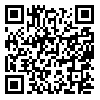Objective: The purpose of the present study was to investigate the impact of identity styles on the propensity toward smoking, alcohol, and drug use from early to late adolescence. Method: This cross-sectional analytical study was conducted using a two-stage sampling method on 435 male middle and high school students in Siahkal County during the 2023-2024 academic year. Data were collected using Berzonsky’s Identity Styles Questionnaire and the Iranian Adolescent Risk-Taking Scale. Pearson correlation, multiple linear regression, and Fisher’s z-test were employed for data analysis. Results: In early adolescence, the informational identity style was significantly negatively associated only with the tendency to use drugs (p < 0.05), while the diffuse-avoidant style showed a significant positive association with cigarette and alcohol use (p < 0.05). In middle adolescence, only the normative style was negatively associated with cigarette use (p < 0.05), whereas the diffuse-avoidant style had a significant positive relationship with all three tendencies (p < 0.01). In late adolescence, both informational and normative identity styles were significantly associated with lower tendencies toward cigarette, alcohol, and drug use, while the diffuse-avoidant style was significantly associated with higher tendencies toward all three substances (p < 0.05). Moreover, Fisher's z analysis revealed that, compared to middle adolescence, the informational and normative identity styles were associated with a significantly lower tendency to alcohol use in late adolescence (z > 1.96). Conclusion: The observed differences in the relationship between identity styles and the tendency toward addiction at various stages of adolescence could serve as the basis for designing targeted interventions and support programs to reduce addiction, tailored to each identity style and developmental stage.
| Rights and permissions | |
 |
This work is licensed under a Creative Commons Attribution-NonCommercial 4.0 International License. |


